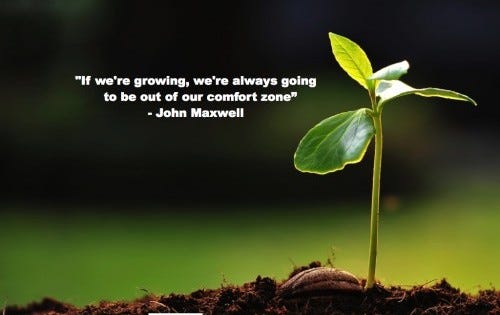Hey there, reader. Let me take you back to a time when I felt completely stuck. It was about five years ago—I was in my late twenties, grinding away at a job that paid the bills but sucked the life out of me. Every morning, I’d hit snooze a dozen times, dreading the commute and the endless meetings that went nowhere. Then one day, after a particularly rough breakup, I picked up a dusty old book on self-improvement from my shelf. That simple act sparked something inside me. I started journaling my thoughts, setting small goals like reading for 20 minutes a day, and slowly, things shifted. I landed a better role, rebuilt my confidence, and even ran my first half-marathon. Looking back, that was my crash course in personal growth. It’s not some fancy buzzword; it’s the quiet force that turns ordinary lives into something extraordinary. In this article, we’ll dive deep into why it matters so much, how it shapes everything from your career to your relationships, and practical ways to make it part of your routine. Stick around—by the end, you might just feel that spark too.
What Is Personal Growth?
Personal growth is all about evolving into a better version of yourself through intentional efforts and experiences. It’s not just picking up new skills; it’s rewiring how you think, feel, and interact with the world around you. Think of it as upgrading your internal software to handle life’s glitches more smoothly.
Whether you’re learning a new language or working through past traumas, personal growth pushes you beyond your comfort zone for lasting change.
Examples of Personal Growth in Everyday Life
Picture this: a friend of mine, let’s call her Sarah, decided to tackle her fear of public speaking after bombing a work presentation. She joined a local Toastmasters group, practiced weekly, and within months, she was confidently leading team meetings. That’s personal growth in action—turning a weakness into a strength through consistent practice.
Real-world stories like Sarah’s show how small steps can lead to big transformations, making daily life more fulfilling.
The Difference Between Personal Growth and Self-Improvement
Personal growth encompasses the big picture, like shifting your mindset or values, while self-improvement often focuses on specific habits, such as better time management. Both overlap, but growth feels more holistic, touching on emotional and spiritual aspects too.
It’s like comparing a full home renovation to just painting the walls—both matter, but one changes the foundation.
Why Is Personal Growth Important in Life?
In a world that’s constantly changing, personal growth keeps you adaptable and resilient. Without it, you risk stagnation, where days blur into years without real progress or joy. It’s the key to unlocking potential you didn’t even know you had.
Embracing growth helps you navigate challenges, from job losses to personal setbacks, with a sense of purpose.
Boosting Mental Health and Well-Being
When I hit rock bottom after that breakup, focusing on growth—like daily walks and therapy—lifted me out of a fog I didn’t realize I was in. Studies show that pursuing self-development reduces stress and builds emotional resilience. It’s like giving your mind a workout to stay sharp.
This isn’t just feel-good talk; it’s backed by real benefits that make tough days easier to handle.
Enhancing Career Success and Opportunities
Personal growth directly fuels professional wins. For instance, learning new skills through online courses opened doors for me to switch industries. It boosts motivation and keeps you competitive in a fast-paced job market.
Think of it as investing in your future self—companies love employees who evolve.
Pros and Cons of Focusing on Career-Oriented Growth
Pros:
- Opens up promotions and higher pay.
- Builds a strong professional network.
- Increases job satisfaction over time.
Cons:
- Can lead to burnout if not balanced.
- Might require upfront time and money.
- Risks ignoring other life areas like family.
Strengthening Relationships and Social Connections
Growth teaches empathy and better communication, turning rocky relationships into solid ones. I remember mending fences with an old friend by owning up to my flaws—something I learned from a self-help podcast. It fosters deeper bonds.
Without it, misunderstandings pile up, leaving you isolated.
Benefits of Personal Growth
The perks of personal growth ripple through every part of life, from sharper focus to greater happiness. It’s not instant, but the compound effect is powerful, like interest building in a savings account. Prioritizing it leads to a more balanced, vibrant existence.
You’ll notice improvements in health, productivity, and even creativity as you commit.
Key Benefits at a Glance
Here’s a quick table summarizing some top advantages:
| Benefit | Description | Real-Life Impact |
|---|---|---|
| Increased Self-Awareness | Helps you understand your strengths and blind spots. | Leads to better decisions and fewer regrets. |
| Better Resilience | Builds the ability to bounce back from failures. | Reduces anxiety during tough times. |
| Improved Relationships | Enhances empathy and conflict resolution. | Creates stronger, more supportive networks. |
| Career Advancement | Sharpens skills and adaptability. | Opens doors to new roles and raises. |
| Overall Happiness | Fosters a sense of purpose and fulfillment. | Lowers depression risk and boosts daily joy. |
This table isn’t exhaustive, but it highlights why growth is worth the effort.
Long-Term vs. Short-Term Benefits
Short-term wins might include more energy from a new exercise habit, while long-term ones build lasting confidence. I saw quick mood boosts from meditation, but the real magic happened after months—deeper self-trust.
Balancing both keeps motivation high without overwhelming you.
How to Achieve Personal Growth
Starting your growth journey doesn’t require a massive overhaul; small, consistent actions add up. Begin by assessing where you are—maybe journal about your goals or seek feedback from trusted friends. Resources abound, from books to apps, making it accessible for anyone.
The key is patience; growth is a marathon, not a sprint.
Setting Effective Goals for Growth
Use the SMART framework: Specific, Measurable, Achievable, Relevant, Time-bound. For example, instead of “get fit,” aim for “run 5K three times a week for two months.” This clarity turns vague dreams into actionable plans.
It worked wonders for me when I set a goal to read one book monthly—now it’s a habit.
Comparison: SMART Goals vs. Vague Intentions
SMART goals provide structure and trackability, leading to higher success rates. Vague intentions, like “be better,” often fizzle out due to lack of direction. The difference? One builds momentum; the other breeds frustration.
Choose SMART for real progress.
Best Tools and Resources for Personal Growth in 2025
In 2025, tech makes growth easier than ever. Apps like Headspace for meditation or Duolingo for learning skills are game-changers. Books such as “Atomic Habits” by James Clear remain timeless for habit-building.
Where to get them? Check out platforms like Audible for audiobooks or Coursera for free courses.
- Meditation Apps: Headspace or Calm—great for beginners, with guided sessions under 10 minutes.
- Journaling Tools: Apps like Day One or simple notebooks to track thoughts and progress.
- Online Communities: Reddit’s r/selfimprovement for shared stories and advice.
- Books and Podcasts: “The Power of Habit” or “How to Fail at Almost Everything” by Scott Adams—fun reads with practical tips.
These resources fit any budget, from free to premium subscriptions.
Overcoming Common Obstacles
Everyone hits roadblocks, like procrastination or self-doubt. My trick? Break tasks into tiny steps—five minutes of effort beats none. Surround yourself with supportive people to stay accountable.
Humor helps too; laugh at slip-ups instead of beating yourself up.
Pros and Cons of Group vs. Solo Growth Efforts
Pros of Group: Accountability, fresh perspectives, motivation from others.
Cons: Scheduling conflicts, potential distractions.
Pros of Solo: Flexibility, deep self-reflection.
Cons: Easier to quit without external pressure.
Mix both for the best results.
Real-Life Examples of Personal Growth
Stories of transformation inspire us all. Take Oprah Winfrey, who rose from a tough childhood to media mogul through relentless self-education and therapy. Her journey shows how facing pain head-on leads to empowerment.
Or Elon Musk, constantly learning new fields like rocket science—proof that curiosity drives success.
My Own Story of Turning Things Around
A few years back, I was overweight and unmotivated, binge-watching shows instead of living. I started with walks, then gym sessions, losing 30 pounds and gaining energy. It wasn’t easy—plenty of cheat days—but the confidence boost changed my social life.
Sharing this feels vulnerable, but if it nudges you to start, it’s worth it.
Famous Success Stories
JK Rowling went from welfare to billionaire author by persisting through rejections. Her Harry Potter series stemmed from personal grief, turning loss into creative gold.
These tales remind us growth often blooms from hardship.
Challenges in Personal Growth and How to Overcome Them
Growth isn’t always smooth; fear of failure can paralyze you. I once avoided a promotion because I doubted my skills—big mistake. Push through by celebrating small wins and viewing setbacks as lessons.
Resilience builds over time, like a muscle.
Dealing with Plateaus
Hitting a stall? Switch things up—try a new hobby or mentor. My plateau in fitness ended when I added yoga, reigniting progress.
Patience and variety keep the fire alive.
People Also Ask
Google users often search for related questions on personal growth. Here, I’ll tackle some common ones based on popular queries, drawing from real insights.
What Are Examples of Personal Growth?
Examples include learning a new skill, like coding, or improving emotional intelligence through therapy. One guy I know quit smoking after 20 years, transforming his health and mindset.
It’s about measurable changes that enhance your life.
Why Is Growth Important in Life?
Growth prevents stagnation and fosters fulfillment. Without it, you miss out on potential joys and achievements. As one article puts it, it’s vital for well-being and purpose.
It keeps life exciting and meaningful.
What Are the 5 Areas of Personal Growth?
The five key areas are emotional, intellectual, physical, social, and spiritual. Focusing on each, like building social skills through networking, creates balance.
Neglect one, and others suffer.
How Do I Start Personal Growth?
Begin with self-assessment—list strengths and goals. Read books like “Atomic Habits” or join online courses on platforms like Udemy.
Start small to avoid overwhelm.
FAQ
What is the main goal of personal growth?
The main goal is becoming your best self, achieving fulfillment across life’s areas. It’s ongoing, not a destination.
How does personal growth affect relationships?
It improves communication and empathy, leading to healthier bonds. Grown individuals attract positive people.
What are the best books for personal growth?
Classics like “The 7 Habits of Highly Effective People” by Stephen Covey or “Atomic Habits” by James Clear. Check them out on Amazon or your local library.
For more recommendations, see our best books for personal growth guide.
Can personal growth help with career changes?
Absolutely—it equips you with new skills and confidence. Many switch fields successfully through targeted learning.
Is personal growth expensive?
Not necessarily; free resources like podcasts and YouTube abound. Invest wisely in what resonates.
Conclusion
Wrapping this up, personal growth isn’t a luxury—it’s essential for a life well-lived. From my own twists and turns to icons like Oprah, the evidence is clear: investing in yourself pays dividends in happiness, success, and connections. Sure, it’ll have bumpy moments, maybe even a few face-palm fails (I’ve had plenty), but that’s where the real magic happens. Start today with one small step—grab a journal, download an app, or chat with a friend about your dreams. You’ve got this. And if you’re hungry for more, explore sites like Positive Psychology for deeper dives. Remember, the journey is yours—make it count.
(Word count: 2,756)





